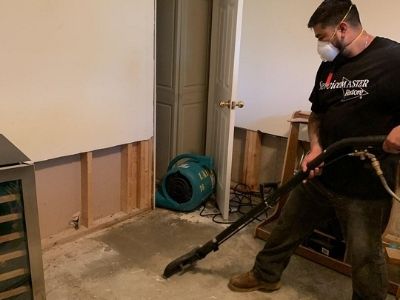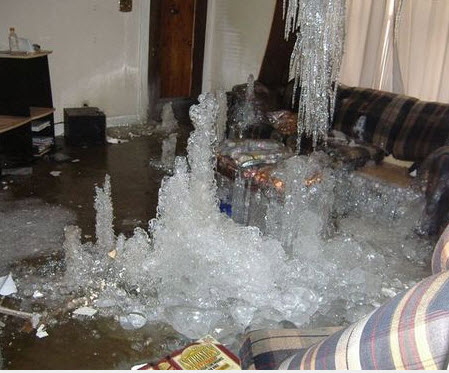Getting to Know Septic Tank Maintenance: Essential Tips
Getting to Know Septic Tank Maintenance: Essential Tips
Blog Article
This article down below pertaining to What You Should And Shouldn’t Do When Dealing With Water Damage is absolutely enjoyable. You should look it over.

What should you do if a water pipeline ruptureds in your home? The longer you wait, the a lot more serious the damages that can occur to your home. For these factors, you need to discover how to act in the event of a ruptured water pipeline.
Turn off the Main Waterline Valve
Look for the neighborhood shut-off valve to turn off the water in one details area only. If you do not understand where the localized shut-off shutoff is, go for the primary water line shutoff and transform it off. Normally, the main shutoff is discovered outside the home following to the water meter.
Call Water Damage Restoration Pros for Aid
After shutting the water resource, call the experts for help. Because the pipelines needed to be taken care of and there is a demand to deal with the various other problems to your home, this scenario is not something you can do some DIY. If you can not deal, seek aid from a trusted firm providing 24/7 emergency solutions. With their professional aid, you can avoid a lot larger water damage consisting of warped baseboards, loosened floor tiles, or damaged structures. Do not take this problem lightly and also seek expert support for your complete assurance as well as a credible service.
Record the Damage For Insurance
While you're waiting on the pros to arrive, get some documentation of the damage caused by the errant pipeline. Take images as well as video clips of whatever. Do close-up shots of the damaged spots and also belongings. Your documents will certainly function as proof for your home owner's insurance. Keeping aggressive with this scenario assists you to file a claim for coverage, which will better support you as well as your family to come back on your feet.
Recover Things That Can Be Saved
Examine the damaged items as well as take out the most crucial ones from the pile as soon as you're done taking images. Dry them off in a dry/warm area far from the broken location as well as attempt to maintain them as much as you can. Drag as much moisture as you can to the material so it can begin to dry out.
Start the Drying Process
You need to start the drying procedure as soon as possible. Fortunately, the water from your waterlines is already tidy so you do not need to bother with sewage system water. The flowing water might have interrupted the dirt and also particles in your carpetings as well as floorboards. In this situation, put some handwear covers on and also begin some damage control. Use buckets to dump out the water. Blot out as much water as you can from the surface areas with old towels. Activate an electrical follower or open your windows to promote air circulation. These steps will certainly accelerate to completely dry as well as discourage mold and also mold growth.
Specialists are the only people certified to assess properly and fix the burs pipelines and also succeeding damages. They typically offer silent red flags like gurgling paint, water stains.
What should you do if a water pipeline ruptureds in your home? For these factors, you need to discover just how to act in the event of a ruptured water pipeline. After shutting the water source, call the experts for aid. With their expert assistance, you can prevent much bigger water damage including deformed walls, loose ceramic tiles, or harmed structures. Thankfully, the water from your waterlines is currently tidy so you do not have to fret about sewage system water.
How to Handle a Burst Pipe and Minimize Damage
Steps to Take Ahead of Time
If you own property in an area that experiences cold weather, you need to be aware of seasonal maintenance tasks that will help you protect your property as the weather changes each year. One of the most important steps is to winterize your pipes to ensure they won't freeze or burst when the temperature drops. This includes action items like insulating any exposed pipes, detaching garden hoses and covering outdoor faucets. If the weather gets cold enough, you may even consider leaving a faucet dripping or opening cabinet doors during the coldest parts of the day.
No matter how prepared you might be, accidents and emergencies still happen. You'd be wise to set up a savings account specifically for your property so you have a "rainy day" fund set aside for unexpected expenses. All homes—regardless of age, location or condition—will inevitably need some form of emergency repair.
Steps to Take for Frozen Pipes
A frozen pipe will not necessarily burst, so if you can catch a frozen pipe early on, you could save yourself a major headache. When your area experiences frigid temperatures, be sure to check your plumbing and keep an eye out for warning signs like faucets only releasing small amounts of water or toilets not refilling when flushed. If you do run into one of these issues, you're likely dealing with a frozen pipe.
If this happens, your first step should be to cut off the water supply to that section of the plumbing. Expanding and freezing water can quickly cause damage. Even if the water supply is shut off, you will likely still deal with some leaking from the water that defrosts after the pipe has thawed. Be prepared with a mop, bucket and/or towels to quickly soak up any excess water.
In order to thaw a frozen pipe, you can use a space heater, infrared or incandescent heat lamp, or even a hairdryer to warm up the frozen area. Heat tape is also an option and should be used according to manufacturer instructions. Do not use any sort of open flame to thaw frozen pipes, as it poses a major fire hazard and can damage your pipes further.
Steps to Take for a Burst Pipe
Water damage claims are the second most common insurance claim in the U.S. When you're dealing with a frozen pipe, the water continues to expand as it freezes, which creates pressure that can cause a pipe to burst. When this happens, the crack or leak in the pipe allows water flow from the pipe to enter your home where it shouldn't. If a pipe does burst, you need to act quickly to mitigate property damage and repair cost.
Your very first step should be to shut off your main water supply to minimize flooding—typically the most expensive damage to address. Once you've shut off the water supply, make sure you identify the entire area that has been impacted by the leak. Remove as much water as possible—as quickly as possible—using a mop, sponges, towels or a shop vacuum or wet/dry vacuum. To prevent long-term damage due to moisture build-up, run a dehumidifier or fan in the affected area. Contact a licensed plumber to ensure the pipe is correctly repaired before running any water to that section of the home again. Burst pipes and the associated water damage are something you absolutely want to avoid as a property owner. If you've had to learn your lesson the hard way, don't let yourself get caught in a similar situation during the next spell of cold weather. The best way to deal with frozen or burst pipes is to prevent them in the first place—proactive winter maintenance will save you time, money and a whole lot of stress.

I'm certainly very involved in What To Do And What Not To Do When Dealing With Water Damage and I hope you enjoyed reading the entire page. Those who liked our blog post if you please be sure to share it. Thanks for going through it.
Report this page